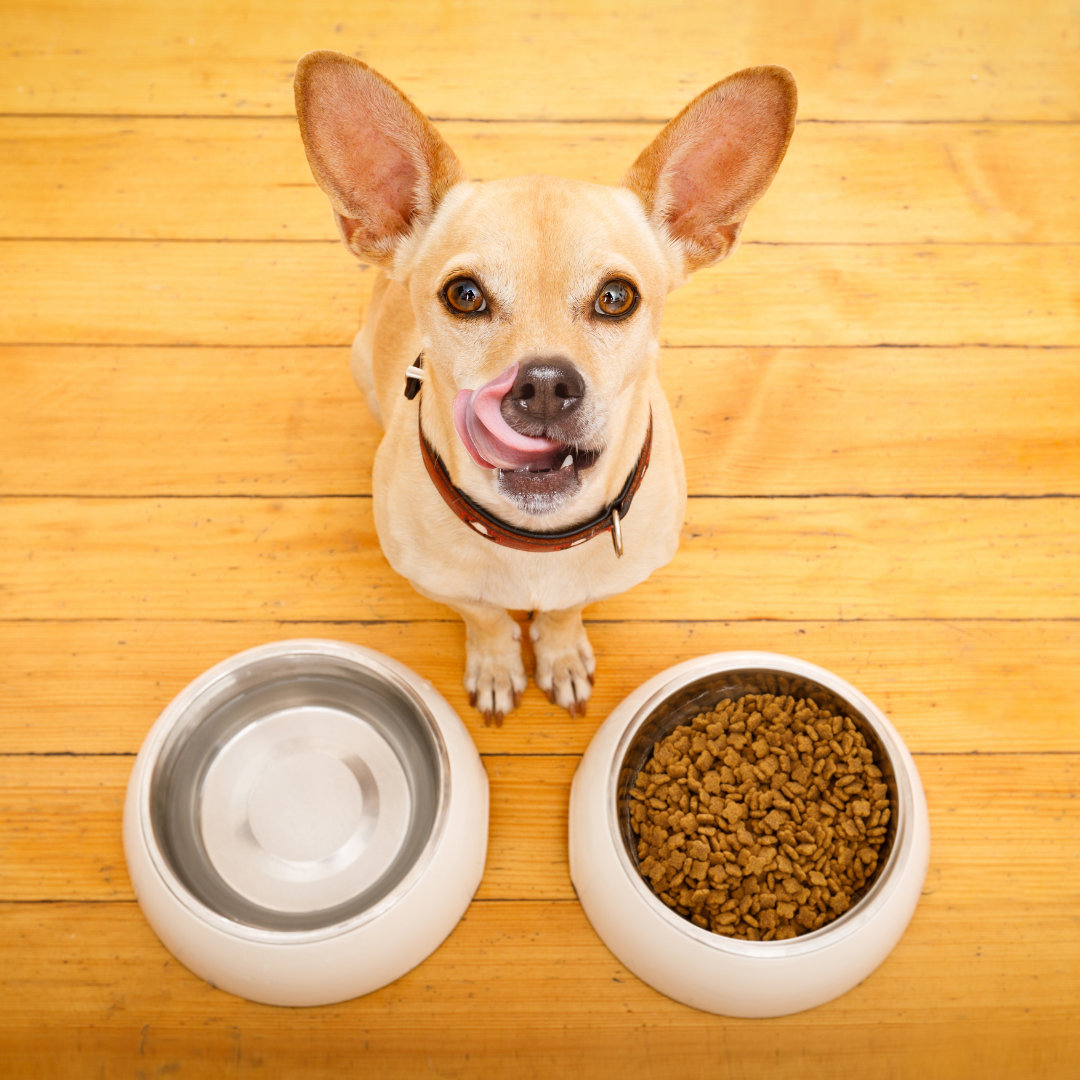We’re dog parents. We want the best for our dogs. But did you know that when it comes to feeding them, there’s more than just putting the food in their bowls and letting them go? It’s true, there is…and the FDA has guidelines that can help you prevent bad health effects for your dog from his food.
A recent study published in the journal PLOS ONE suggested that a huge percentage of dog owners don’t really have any idea that the Food and Drug Administration (FDA) has guidelines for how to feed your dog, store his food and clean his dishes…much less follow them.
The authors of the study investigated the feeding habits of dog owners and looked at the impact of the FDA’s hygiene protocols on dog food dish contamination.
Emily Luisana is a co-author of the study and a small animal veterinary nutritionist. She is also on the veterinary advisory board for Tailored, a pet-nutrition dog food company. Caitlyn Getty is another co-author of the study and the scientific affairs veterinarian for NomNomNow, Inc., a company that focuses on pet health and appropriate dog food. (The study wasn’t funded by either of the companies, and the authors did not report any conflicting or competing interests–they solely looked at food handling, not types of food served).
Luisana said that as they realized FDA recommendations were barely known even among professionals, they wondered what pet parents were doing and if THEY were aware of guidelines. They surveyed 417 dog owners and found that just 4.7% of those surveyed were aware of the FDA’s pet food handling and dish hygiene guidelines. Only 43% of those surveyed stored dog food within 5 feet of human food, and 34% washed their hands after feeding.
Additionally, a third of dog parents prepared food on prep surfaces they shared with those for human use. Obviously the concern with these stats is for the health of humans handling the food, as they can also be contaminated with things like Salmonella and E. Coli.
The researchers also specifically looked at the results of 50 pet owners and how they handled food over the course of about eight days. They swabbed the bowls for bacterial populations and split the groups of owners (who had 68 dogs total) into three groups. According to a CNN article, “Group A followed FDA tips which included washing their hands before and after handling pet food, not using the bowl to scoop food, washing the bowl and scooping utensils with soap and hot water after use, discarding uneaten food in a designated manner, and storing dry pet food in its original bag.
Group B had to follow FDA food handling tips for both pets and humans, which also required hand washing for at least 20 seconds with soap and warm water; scraping food off dishes before washing; washing dishes with soap and water hotter than 160 degrees Fahrenheit (71 C) for at least 30 seconds, drying thoroughly with a clean towel, or using a National Sanitation Foundation-certified dishwasher for washing and drying.”
Group C wasn’t given any instructions, but they were told of when the second swab would happen.
There were significant decreases in food dish contamination in those of Groups A and B when compared to Group C. Washing with hot water or a dishwasher decreased contamination as well, as much as 1.5 units on the contamination scale. According to the authors, “cleaning and sanitization guidelines for human dishes are based on achieving a 5-log reduction in bacterial counts,” (from the CDC). A 1.5-log reduction is the same as a 90-99% reduction in microorganisms that can be in your dog’s bowl. A 5-log reduction is equal to 99.999% reduction of microorganisms!
The bowls of those in Group C increased in their microorganisms between the swabbing periods. No one in Group C washed their dogs’ bowls within the eight or so days between connections, even though they knew the FDA guidelines and they knew their dogs’ bowls would be sampled again.
Luisana said that shows just knowing guidelines doesn’t make a huge difference, but education is extremely important, especially for vulnerable populations. The study authors said that prior research has shown that pet food dishes have ranked as highly contaminated in years past, sometimes having the bacterial loads close to TOILETS.
Okay, we understand that many dogs drink from toilets too…and that’s why this study and other studies like this are SO IMPORTANT–they reiterate the need for ensuring your dog’s gut health is as good as it can be.
You see, there IS a way you can help combat the bacterial loads your dog comes across every day—whether it’s in the dish (or toilet) he drinks and eats from or the soil he sniffs to deliver the best peemail or whatever other disgusting and yucky thing he licks (in addition to his butt)…yes, cleaning your dog’s dishes will help.
But the best thing you can do to ensure that whatever bad bacteria get into your dogs’ digestive system are stopped in their tracks is to give them Bernie’s Perfect Poop. It’s the perfect combination of high-quality fiber, digestive enzymes, and pre-and probiotics.
Probiotics are GOOD, HELPFUL and BENEFICIAL bacteria that can crowd out all the nasty bacteria that your dog comes in contact with. When your dog gets Perfect Poop with every meal, he’s getting high-quality probiotics that withstand his harsh stomach acid conditions and get to the gut–where they flourish and create a pretty doggone perfect microbiome.
Research continuously shows how your dog’s microbiome is key to his overall immunity and well-being, and supplementing with probiotics is the best and easiest way to create that great gut flora.
So now you know! Follow FDA guidelines for washing your dog’s feed and water bowls, and make sure he gets his delicious Bernie’s Perfect Poop with every meal!


